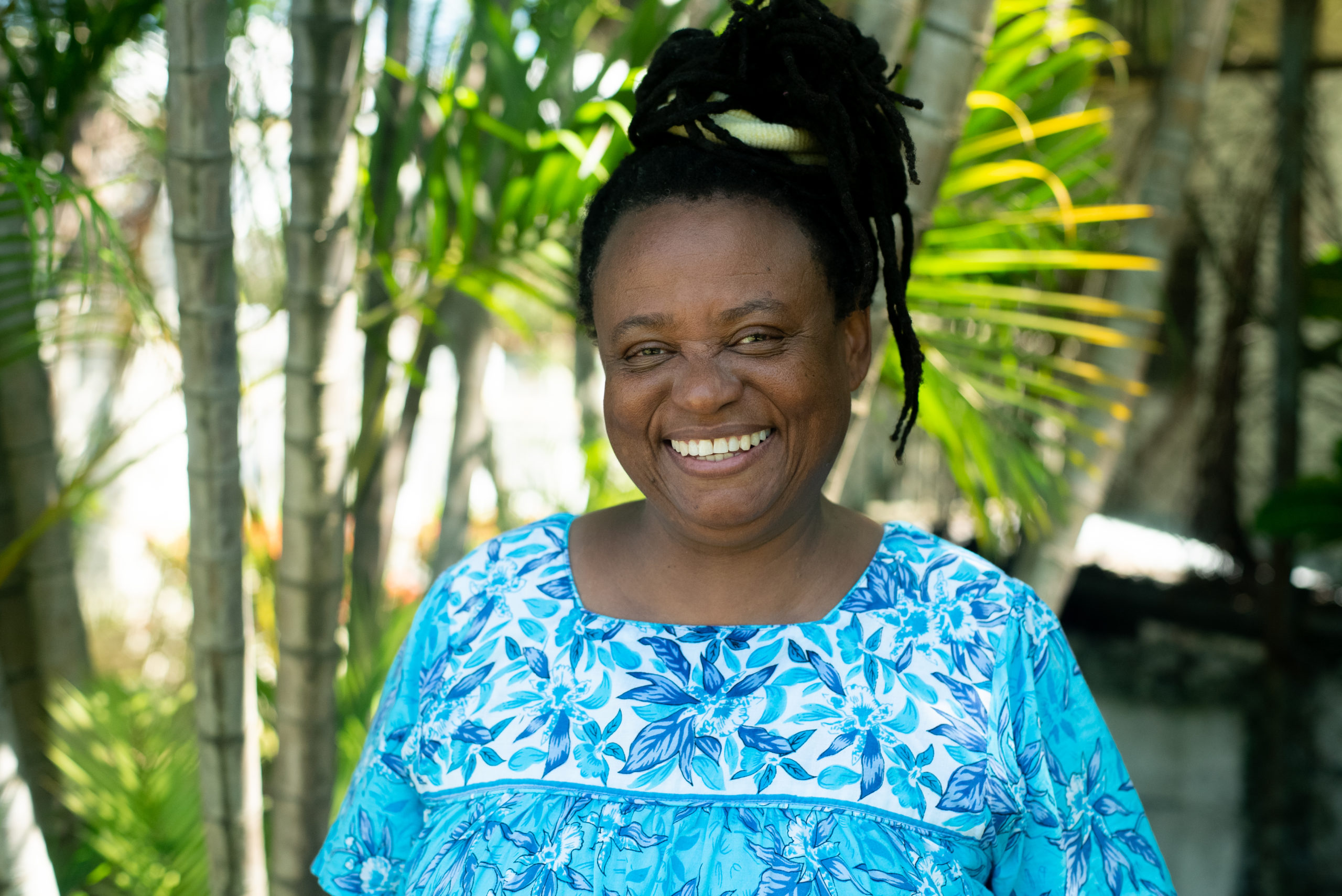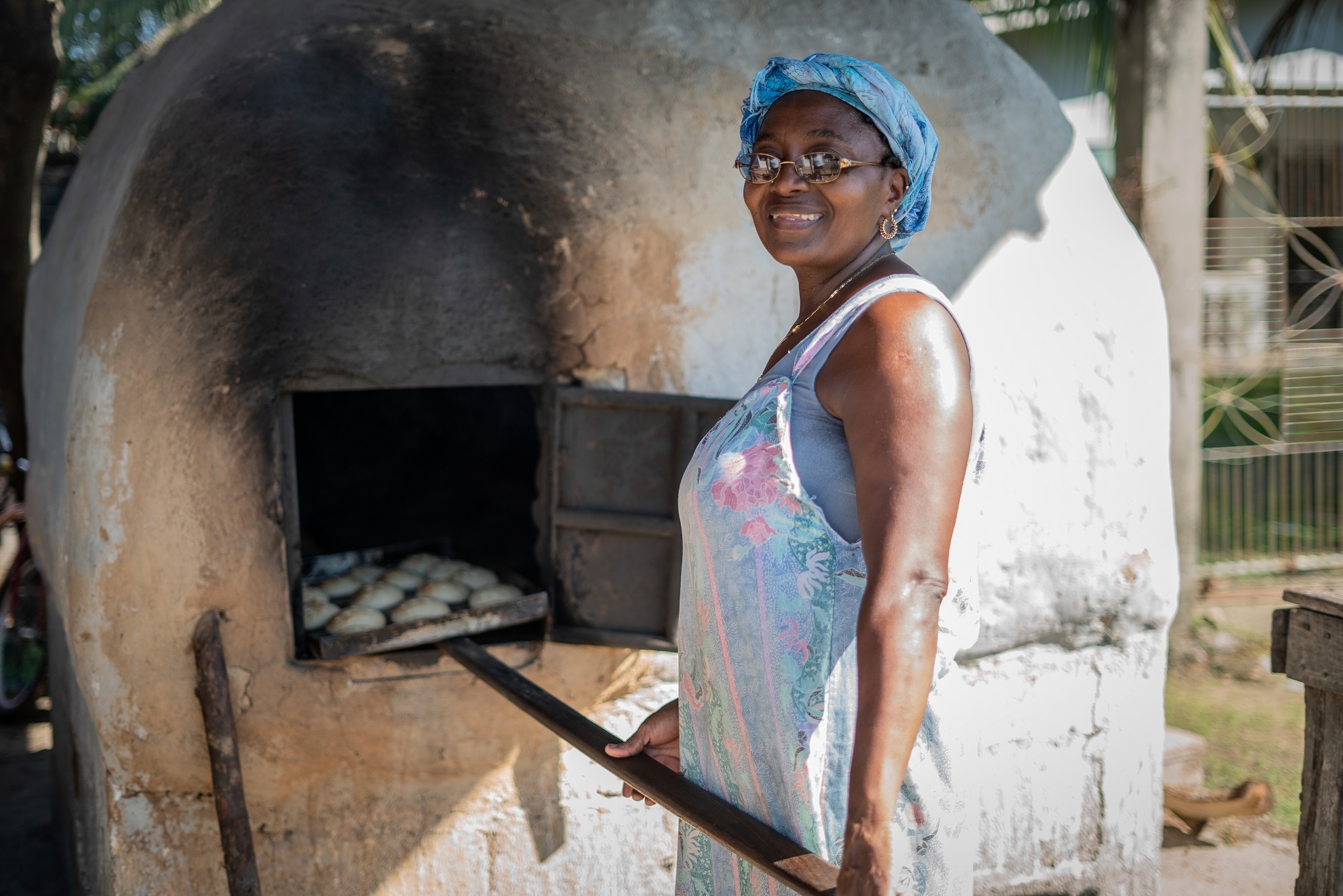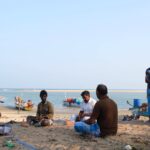This article was published more than 4 years ago.
2020 has been a devastating year for world hunger. Across the globe, food insecurity—the lack of reliable access to sufficient amounts of nutritious food—is on the rise, exacerbated by the COVID-19 pandemic, disruptions to food supply chains, and climate change. According to a joint report by the World Food Programme and more than a dozen partner organizations, 135 million people are acutely food insecure and around 183 million more are at risk.
Out of necessity, however, comes innovation. And in response to hunger, Fund-supported activists around the world are pioneering new ways to feed their communities.
Miriam Miranda is the executive director of the Organización Fraternal Negra Hondureña (Honduran Black Fraternal Organization, or OFRANEH), a social movement supported by the Fund that protects and promotes the rights of Honduras’s Afro-Indigenous Garifuna people. As the elected leader of OFRANEH and a leading Indigenous rights activist, Miriam has witnessed the staggering effects of food insecurity firsthand.
Large-scale industrial and tourism-related development projects threaten Garifuna lands where Indigenous communities have fished and farmed for generations. Local activists accuse corporate interests and the national government of colluding to seize and exploit their territory.
“They’re taking land that we were using to grow beans and rice so they can grow African palm for bio-fuel,” Miriam said in a 2015 speech. “Food sovereignty is being threatened everywhere.”

The COVID-19 pandemic has severely aggravated food insecurity in Honduras. “This pandemic will starve us,” Yensi Velásquez, a mother of two, told the World Food Programme earlier this year.
But with the government’s capacity stretched thin and international aid falling short, local leaders like Miriam have stepped up to feed hungry families. And after years of hard-fought resistance to exploitative development projects, the Garifuna have developed innovative ways of ensuring access to food.
This spring, within days of the pandemic reaching Honduras, OFRANEH organized ollas communitarias—or community pots—in nearly 20 Garifuna areas. Building on a long-standing tradition of communal eating borne of economic hardship and scarcity, the community pots are a collective solution to a common problem.
“It’s not easy, and the risk of [food] shortages is high,” writes one activist from OFRANEH. “However, what little we have, we share.”
Inspired by this Garifuna tradition, other Fund-backed activists in Honduras have followed suit, establishing community pots in the capital city of Tegucigalpa. As the Garifuna say, “Aura buni, Amurü nuni”—me for you and you for me.
Beyond ensuring everyone in their communities has food on the table, OFRANEH has also coordinated a public health response. Community members have sewed fabric masks, made and distributed hand sanitizer, educated people on how to protect themselves from the virus, and provided medicinal tea and information on herbs and nutrition that can help boost the immune system.

While OFRANEH has successfully pivoted to provide much-needed immediate support to their communities, they continue to address and advocate against the systemic inequality and corruption that makes Garifuna people, and other minority groups, more vulnerable to the effects of a pandemic in the first place.
To this end, they are connecting with other groups serving Indigenous communities to help maximize complementary grassroots COVID-19 responses and speaking out via the media about the need for greater transparency in how aid and emergency resources are distributed throughout Honduras.
“Just as we managed to survive the extermination and exile at the hands of the British,” says Miriam, “we will survive COVID-19.”
The COVID-19 pandemic has disproportionately impacted minority communities, including Indigenous peoples like the Garifuna. But through times of crises, visionary leaders like Miriam work untiringly to ensure their communities have continued access to resources, relief, and their fundamental rights.
The Fund is proud to provide Miriam and OFRANEH with the critical support they need to succeed.


